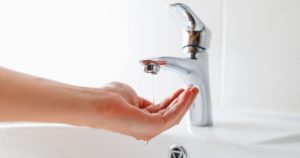If you own a home, it could seem like you need to perform upkeep on everything.
And while this is generally true, there are occasions when we put off necessary maintenance until something breaks.
Consider home radiators as an illustration. Consider this. When did you last get preventive maintenance performed on it?
We decided it would be a good idea to compile advice on how you can prevent and remedy the common causes of radiator leaks after suffering from what felt like an endless winter.
What Leads To Radiator Leaks In Homes?
Since most owners are unaware that even a simple chemical reaction can result in rust and leaks on your heating unit, we thought we’d start here. Typically brought on by neglected sludge in home radiators, which, if left unchecked, can result in tiny holes in your unit and lead to leaks.
Steel and water will always react. Take some time to evaluate your system and get rid of anything mud-textured that might make your home’s radiator stop working properly unless you’re planning to replace your home radiator.
How Can I Avoid Rusting?
Ensure that the plumber cleared the system of any debris when installing your unit if your system is still covered by warranty. Corrosion is more likely to occur if waste recycles through your system.
However, if your system is free of any particles, we advise applying a corrosion inhibitor. This extends the longevity of your equipment by adding an additional layer of protection, which also helps slow down corrosion.
What Happens If My Unit Already Leaks?
It’s not necessary to consider buying a new unit just because yours is leaking. Radiator leakage does not always result in horrifying out-of-pocket expenses, despite what the general public believes.
What to do if your radiator is damp is as follows:
- Determine the source of the water. Determine the cause of the leak and completely dry the radiator.
- You might need to call a plumber if the leak is coming from one of the valves. Grab a wrench, and shut the radiator valve all the way. While your plumber travels to your house, this ought to stop the leak.
- A leak may occasionally occur where a pipe and one of the valves converge. Make sure the loose bolts are tightened before calling a home call. Your issue can very well have an answer here.
- On the other hand, if the leak is coming from your electric radiator, you should replace it right away.
Radiator replacement is never enjoyable, and the associated costs can be high. So, if you haven’t given your system a basic maintenance check, we implore you to do so right away. Do the necessary maintenance before your home’s radiator breaks, not after.
We're the top online retailer of heating equipment and radiators.
Are you trying to purchase a radiator? Please refer to our buyer’s guide!




